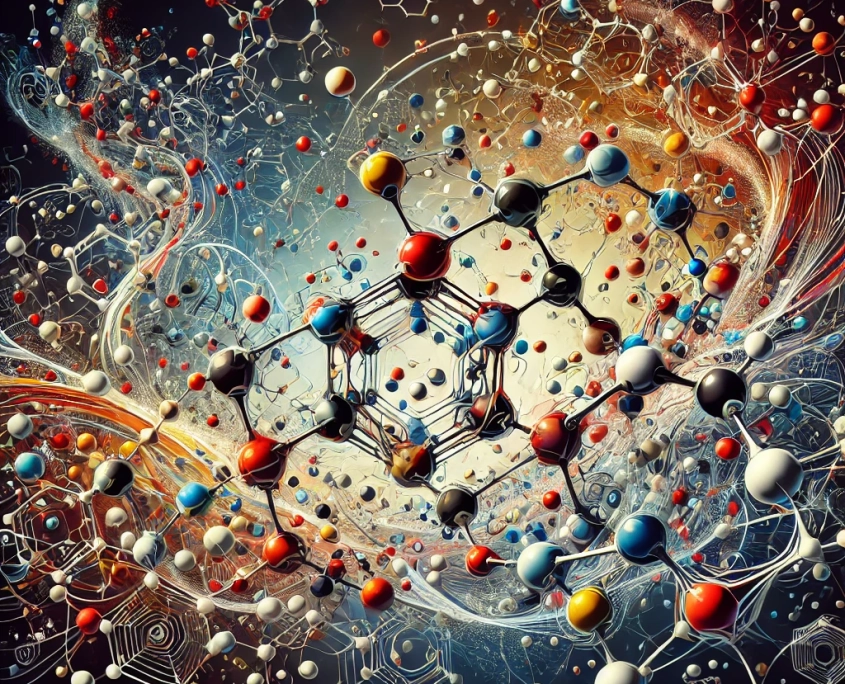The Biochemistry and Therapeutic Applications of Dimethylglycine (DMG)

Dimethylglycine (DMG) is a derivative of the amino acid glycine and functions as a methyl donor. It has garnered interest in the biomedical community for its diverse therapeutic applications. DMG’s potential benefits span across immune modulation, anti-inflammatory effects, cognitive enhancement, and cancer prevention. This paper explores the biochemistry of DMG, its mechanisms of action, and its therapeutic applications, supported by research findings and clinical studies.
Biochemistry of Dimethylglycine
DMG, chemically known as N,N-dimethylglycine, is an intermediary metabolite in the choline to glycine pathway. It acts as a methyl donor in various biochemical reactions, influencing numerous physiological processes. The methyl groups from DMG are essential for the synthesis of neurotransmitters, DNA, and other molecules crucial for cellular function.
Metabolic Pathways
DMG is produced during the metabolism of choline and betaine. It can be converted to sarcosine and then to glycine, with the release of methyl groups at each step. These methyl groups participate in the methylation cycle, contributing to the production of S-adenosylmethionine (SAMe), a universal methyl donor involved in multiple metabolic pathways.
Methylation Cycle
The methylation cycle is vital for regulating gene expression, protein function, and neurotransmitter synthesis. DMG’s role as a methyl donor supports the maintenance of this cycle, impacting cognitive function, cardiovascular health, and detoxification processes.
Mechanism of Action
Immune Modulation
DMG modulates the immune response by enhancing both humoral and cellular immunity. It increases the production of lymphocytes and antibodies, supporting the body’s defense against infections and diseases.
Anti-inflammatory Effects
DMG exhibits significant anti-inflammatory properties by reducing pro-inflammatory cytokines such as TNF-α, IL-6, and IL-1β. It inhibits the production of nitric oxide (NO) and prostaglandin E2 (PGE2), which are key mediators of inflammation.
Antioxidant Activity
As an antioxidant, DMG reduces oxidative stress by scavenging free radicals and enhancing the activity of antioxidant enzymes like superoxide dismutase (SOD) and catalase. This reduces cellular damage and supports overall health.
Therapeutic Applications
Arthritis and Inflammation
Clinical studies have shown that DMG effectively reduces inflammation and improves symptoms of arthritis. It decreases inflammatory markers and enhances joint health by modulating the immune response and providing antioxidant support.
Autism Spectrum Disorders
Research indicates that DMG improves communication, social interaction, and behavior in children with autism. Studies by Dr. Jung and Dr. Kun demonstrate that DMG supplementation leads to better verbal communication, reduced irritability, and improved social interactions.
Cancer Prevention
Animal and cell culture studies suggest that DMG has potential anticancer properties. It inhibits tumor growth and metastasis, particularly in melanoma and other cancers, by enhancing the immune response and reducing oxidative stress.
Cardiovascular Health
DMG supports cardiovascular health by improving lipid metabolism, reducing homocysteine levels, and enhancing blood flow. This reduces the risk of atherosclerosis and other cardiovascular diseases.
Cognitive Enhancement
DMG has been shown to improve cognitive function by supporting neurotransmitter synthesis and reducing oxidative stress. It enhances memory, focus, and overall brain health.
Clinical Studies and Research
Arthritis and DMG
A study on collagen-induced arthritis in rats demonstrated significant reduction in inflammation with DMG supplementation. DMG reduced the levels of pro-inflammatory cytokines and improved joint health.
Autism and DMG
Dr. Jung’s double-blind study on children with autism showed that DMG supplementation led to improved communication, social interaction, and behavior. Another study by Dr. Kun reported similar findings, with 80% of autistic children showing improvement.
Cancer Research
Studies on DMG’s anticancer properties indicate its effectiveness in preventing and reversing cancer. In melanoma studies, DMG reduced primary tumors and metastasis, supporting its potential as an adjunct therapy in cancer treatment.
Dimethylglycine (DMG) is a versatile compound with significant therapeutic potential. Its role as a methyl donor, antioxidant, and immune modulator supports various health benefits, including anti-inflammatory effects, cognitive enhancement, and cancer prevention. Clinical studies validate its efficacy in treating conditions like arthritis, autism, and cardiovascular diseases. Further benefits include improved oxygen utilization, enhanced liver detoxification, and support for cardiovascular health. DMG also aids in reducing lactic acid buildup, which is particularly beneficial during periods of stress. These multifaceted effects make DMG a valuable supplement in various clinical settings. Further research is warranted to fully explore DMG’s potential and establish standardized dosing guidelines for its therapeutic use.
References
- Kendall, R. V., & Lawson, J. W. (1991). Treatment of arthritis and inflammation using N,N-dimethylglycine. United States Patent 5,026,728.
- Kendall, R. V., & Lawson, J. W. (2007). Methods and compositions for modulating immune response and for the treatment of inflammatory disease. United States Patent 7,229,646 B2.
- Jung, S., & Lee, Y. (2000). A double-blind study of dimethylglycine treatment in children with autism. Tzi Chi Medical Journal, 12, 111-112.
- Kun, B. (1998). Dimethylglycine and autism. Research Rev Int, 4(3), 99-102.
- Rimland, B. (1980). Dimethylglycine in the treatment of autism. Research Rev Int, 3(1), 34-36.
- Manis, M., Whitesides, T., & Lawson, J. W. (1999). Role of dimethylglycine in melanoma inhibition. 9th Annual Research Conference, American Institute for Cancer Research.
- The New England Journal of Medicine. (1982). Anti-seizure activity of DMG. 307(18), 1073-1074.
